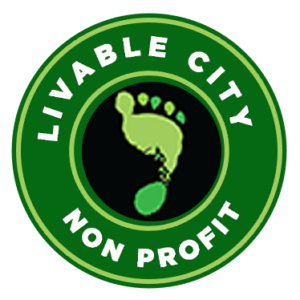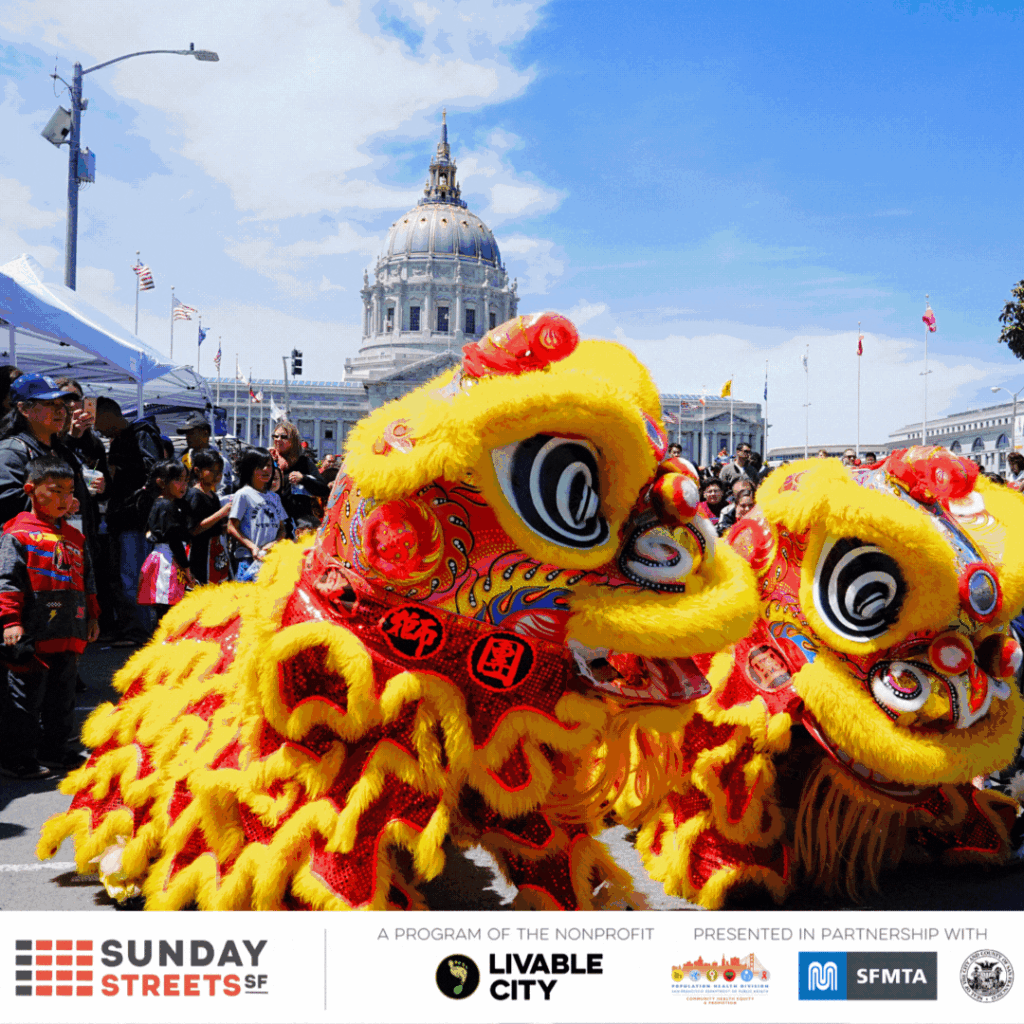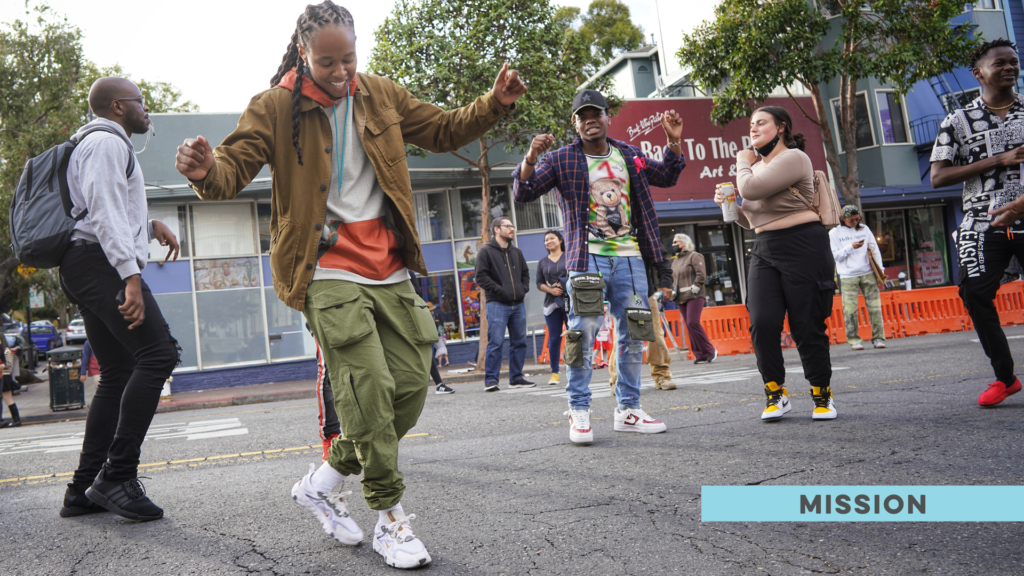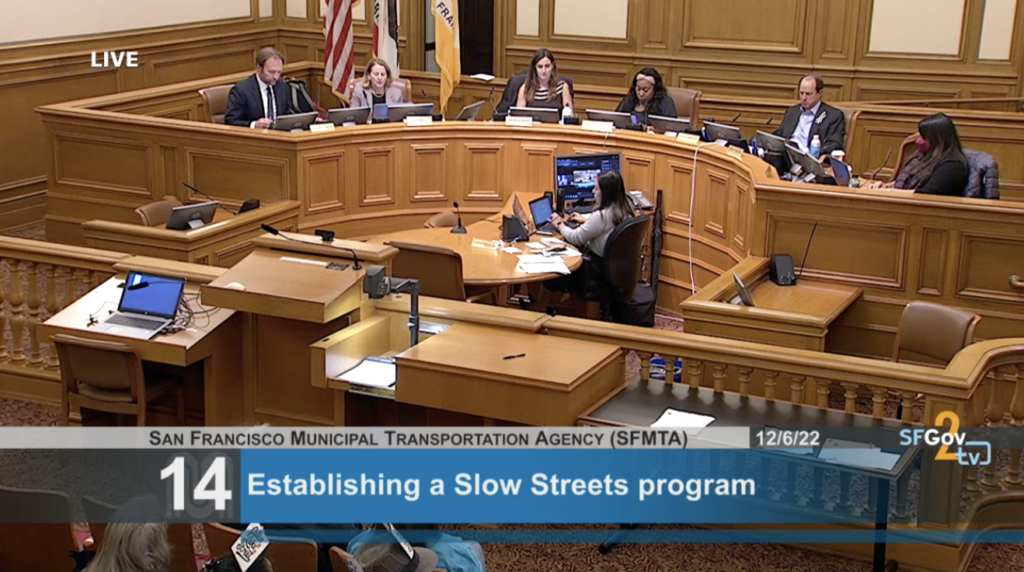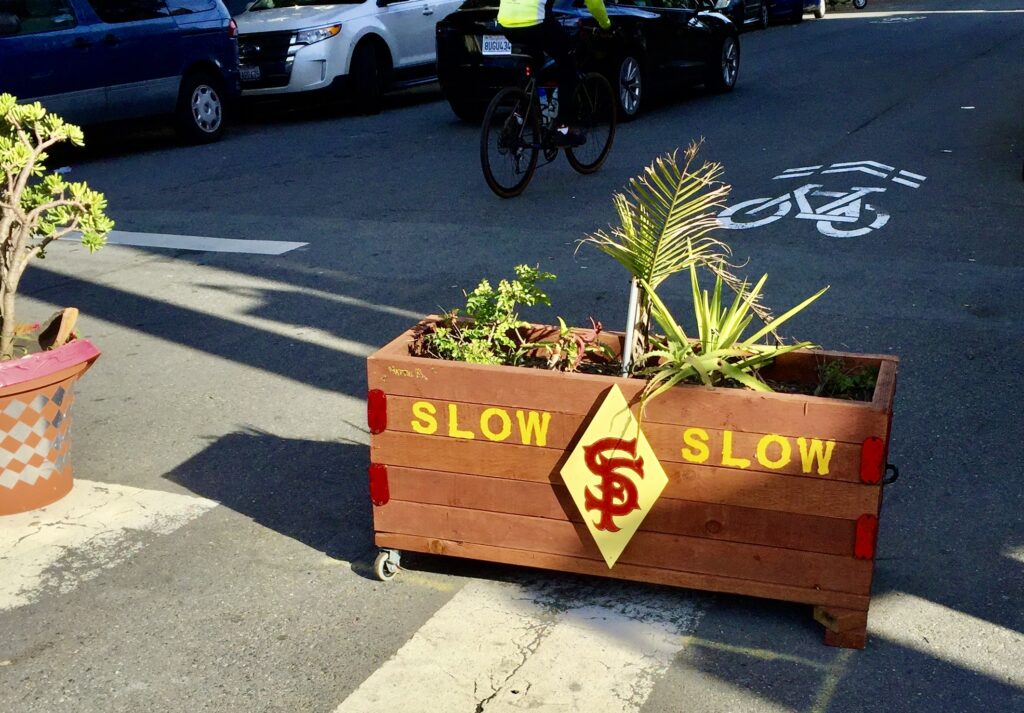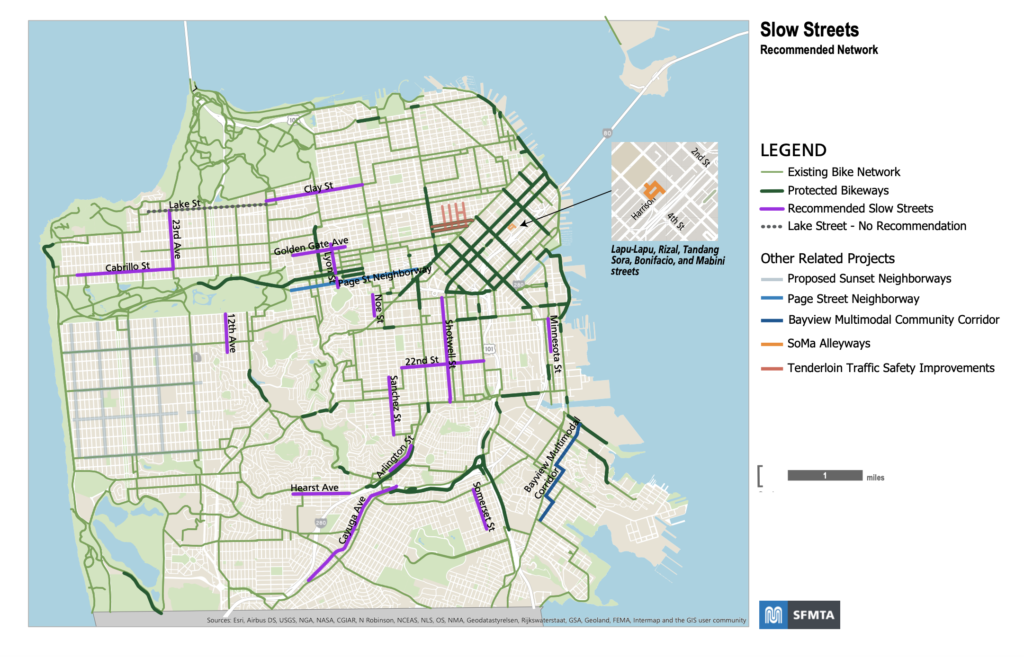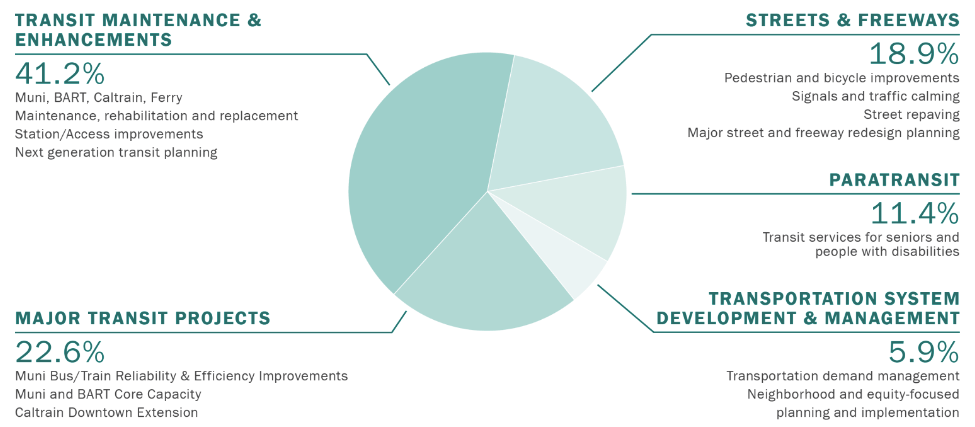
On Sunday, September 24, 2023, Sunday Streets SF will host the Western Addition Community Block Party, creating a car-free recreational destination on Golden Gate Ave., between Laguna St. and Webster St., and the Buchanan Street Mall Park in the Western Addition for the whole family to enjoy.
Check-out the activity guide below and visit SundayStreetsSF.com/WesternAddition.

Activity Guide
ACTIVITY HIGHLIGHTS
- LIVE MUSIC PERFORMANCES ON STAGE & FOOD PROGRAM near Collective Impact with more community & livability resources along the Buchanan Street Mall
- HEALTH & RECREATION Get active with Mobile Rec rock-climbing wall by SF Recreation and Parks, Buchanan YMCA senior yoga classes, and basketball & soccer mini-games with SF Rebels and Street Soccer USA SF
- KIDS & SCHOOL RESOURCES with Wu Yee Children’s Services, SF Public Library & Kesh Cares giveaway
EXHIBITOR GUIDE
ACLU of Northern California • African American Parent Advisory Council – AAPAC • Alcoholics Anonymous • Alternative Family Services Foster Care and Adoption Agency • Bay Area Air Quality Management District / Spare the Air • Bay Area Cancer Connections • Bay Wheels • Black Women Revolt Against Domestic Violence • Booker T. Washington Community Service Center • Boys & Girls Clubs of SF • Buchanan YMCA • CCL San Francisco • Children’s Council of San Francisco • Citizen Film + Opportunity Hub • City College of San Francisco • City EMT • Combat Krav Maga SF • Community Living Campaign • Covered California + Medi-Cal • Dare 2 Dream LLC • Dolores Street Community Services – Home Support & Companionship • El Bethel Church • Embarcadero Rowing Club • Exploratorium • Girl Scouts of Northern California • Honey Art Studio • ICA Cristo Rey Academy • iHeartRadio • Kesh Cares • Laurel Hill Nursery School • Livable City Info Booth • Mental Health Association of SF • Mission Cultural Center of Latino Arts • NICOS Chinese Health Coalition • Open Door Legal • Our Water Our World • Parents for Public Schools of San Francisco • Positive Coaching Alliance • Rebuilding Together SF • Rising Sun Center for Oppoortunity • ROV Tour • SaveMUNI • SF Capoeira Academy • SF Democratic Socialists of America • SF Dept. of Child Support Services • SF Dept. of Elections • SF Public Library Bookmobile & Western Addition Branch • SF Public Works • SF Rebels • SF School of Massage & Bodywork • SF Tobacco Free Project • SF Democratic Party • SF District Attorney’s Office – Victim Services • SF Human Rights Commission & Hula Hoops & Chalk Block • SF Parent Coalition • SF Recreation & Parks – Mobile Rec • SFMTA & Vision Zero • SFSU Nursing Students Association • SFUSD Educational Placement Center & Shared Schoolyard Program • SisterWeb – SF Community Doula Network • SSUSA San Francisco • St. James Catholic School • Success Centers • Sunday Streets Info Booth & Medics • The Colores Painting Co. Inc. • The Plenary, Co. • UCSF & Memory and Aging Center Community Outreach Program • Wu Yee Children’s Services • Xfinity
LOCAL FOOD & RETAIL VENDORS
Dreamer Boyz • EkLyPzE EnFuZhEnZ • Gourmonade • Limau&Co • On The Ground Catering • Quanies • Sam’s Gourmet Jams • Signature Innovation • SirhandsstreetFoodz • The Geez Freeze • The Real Big Mama’s LLC • URBAN VALLEY • Val’s Hosiery
MUSIC & ENTERTAINMENT
Midnite Flyte Jazz & DJ • San Francisco Rock Project • Catherine DeNuvaring & Mutiny Radio Comedy Show inside Rosa Parks Senior Center


